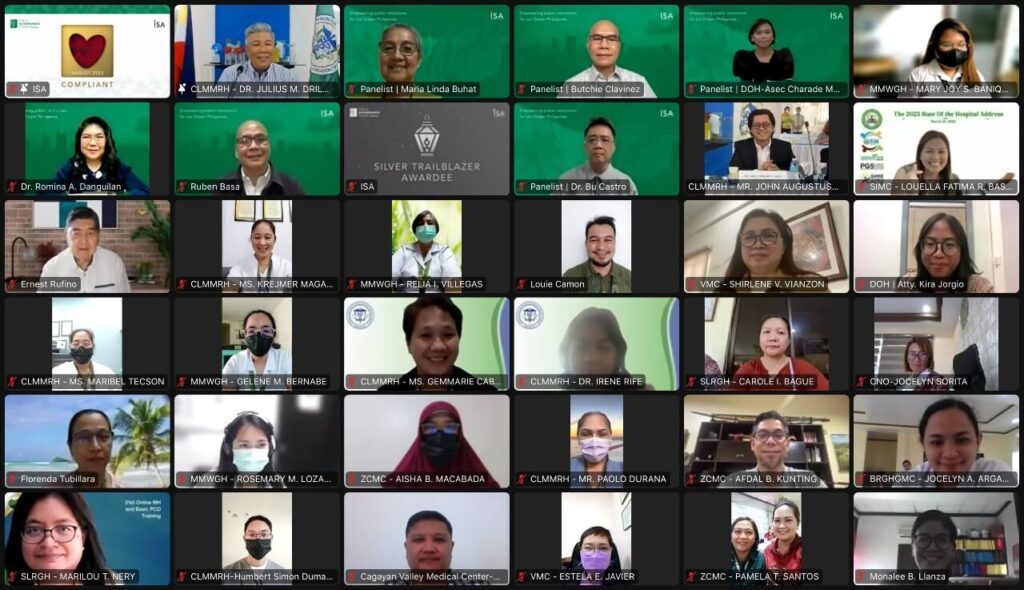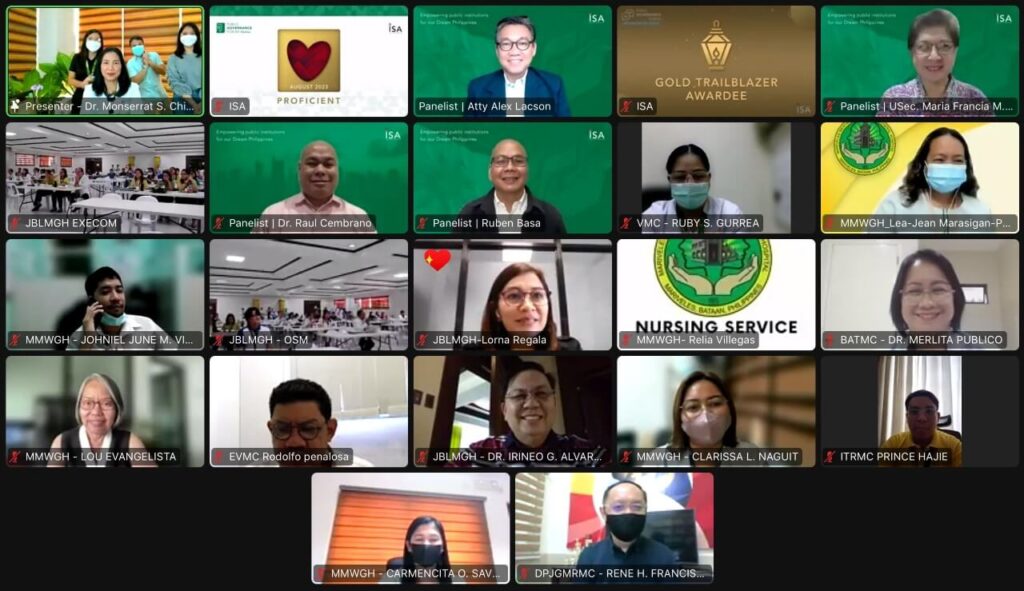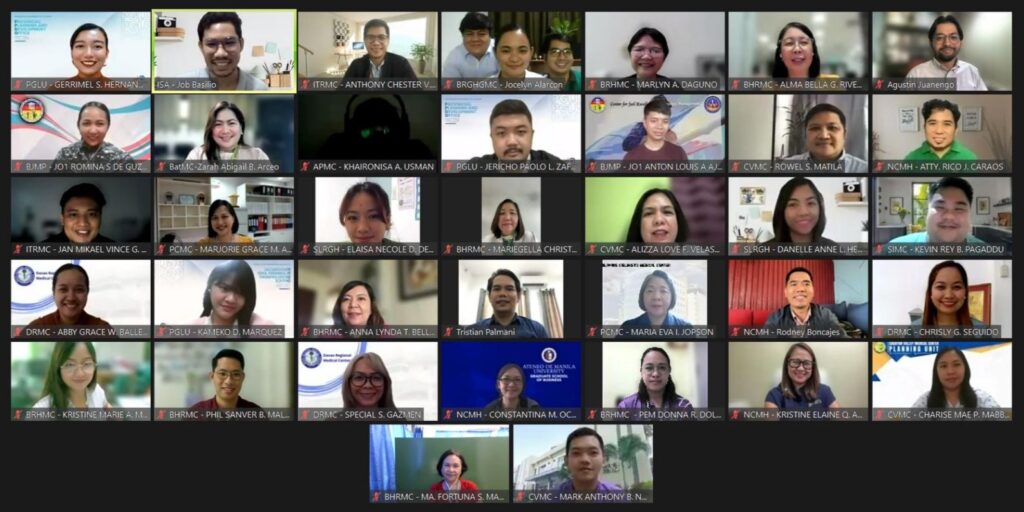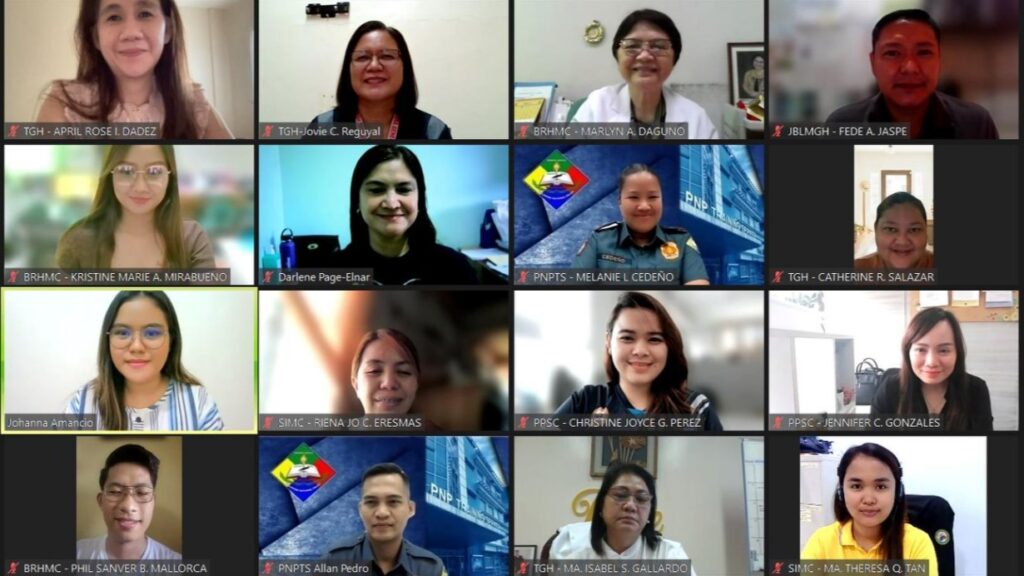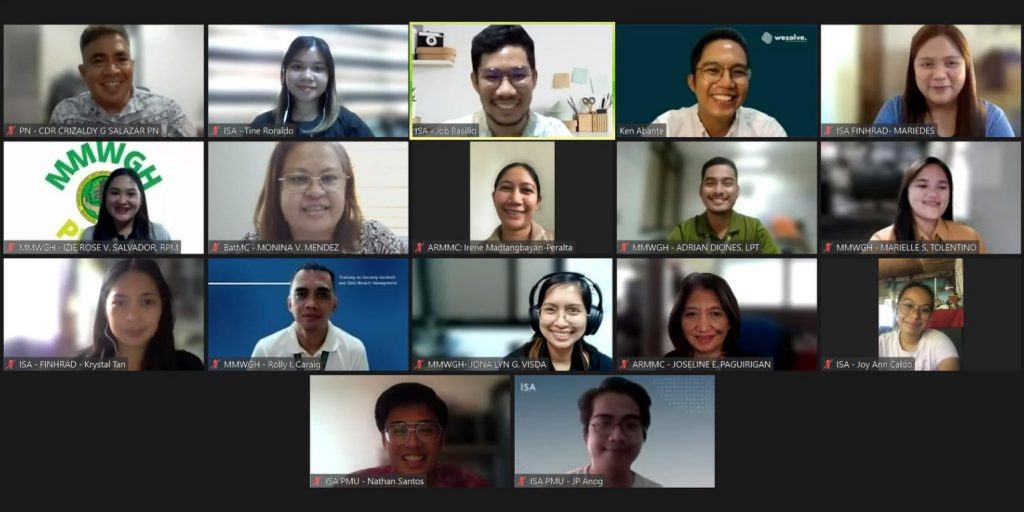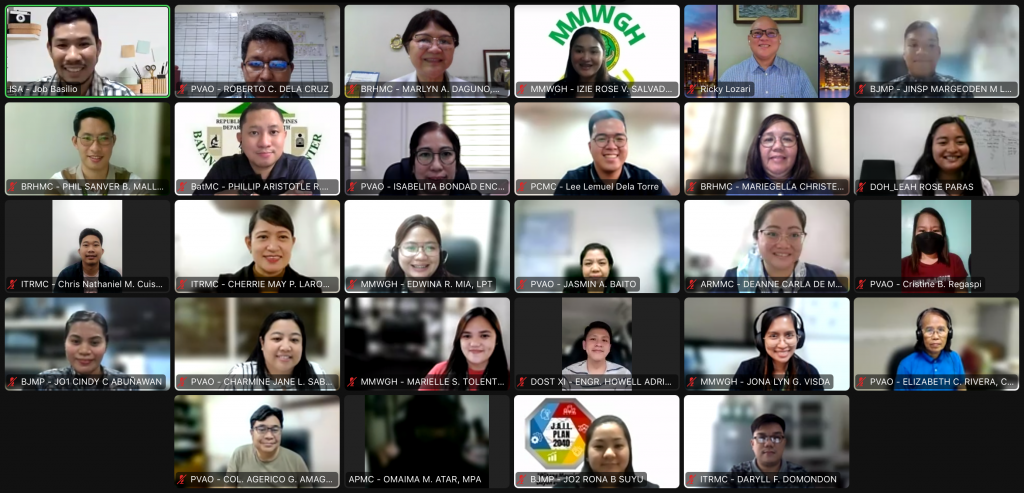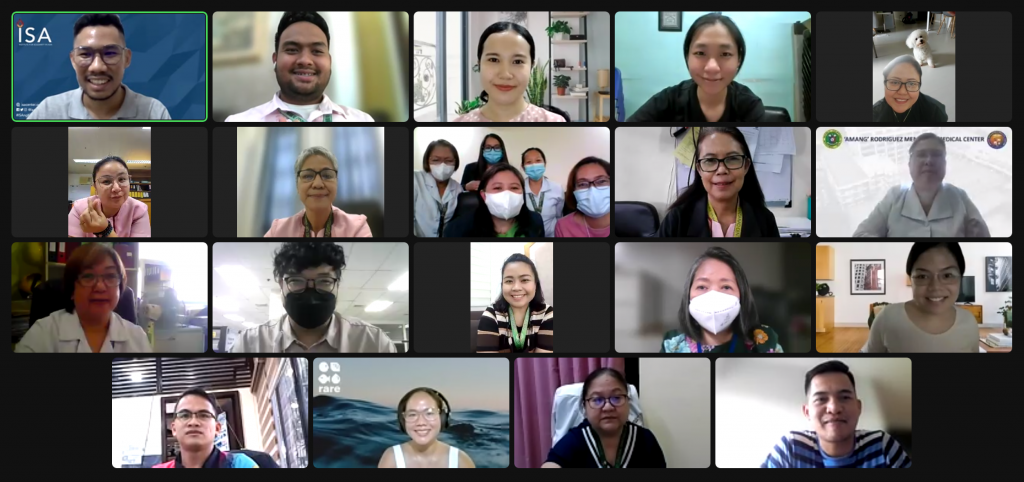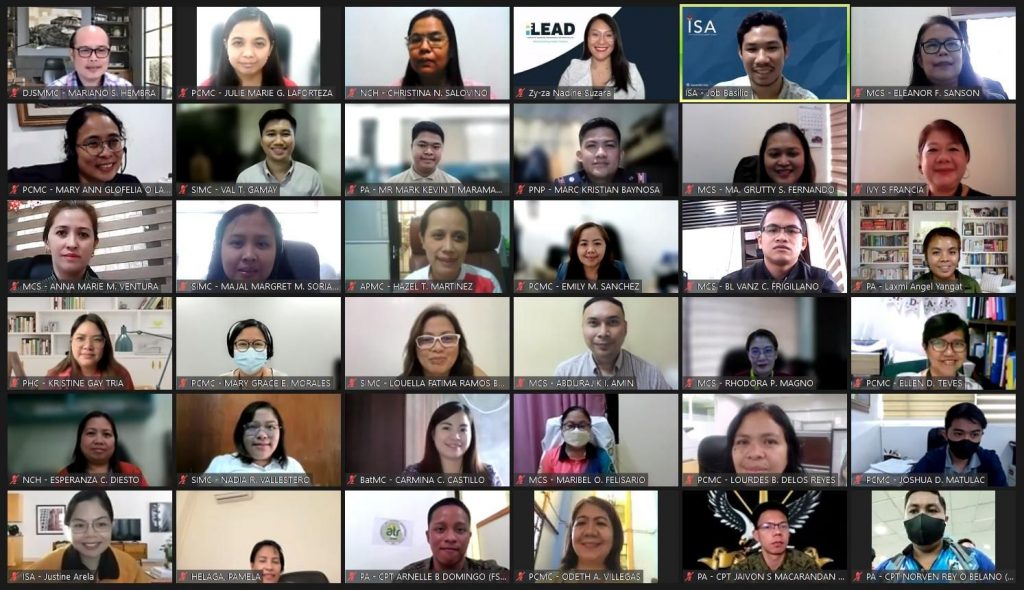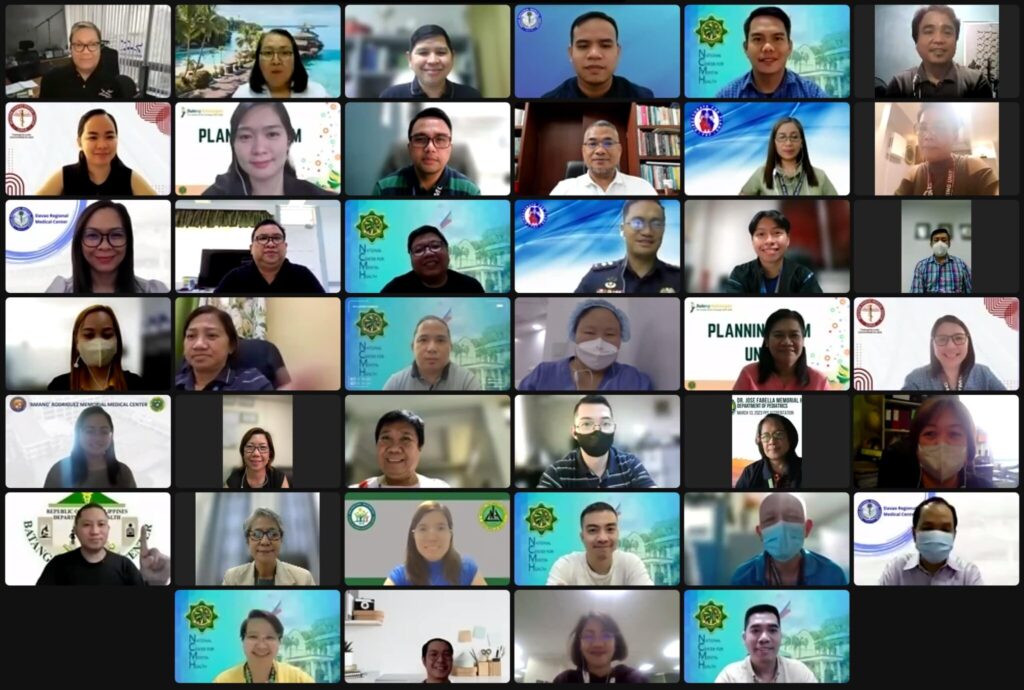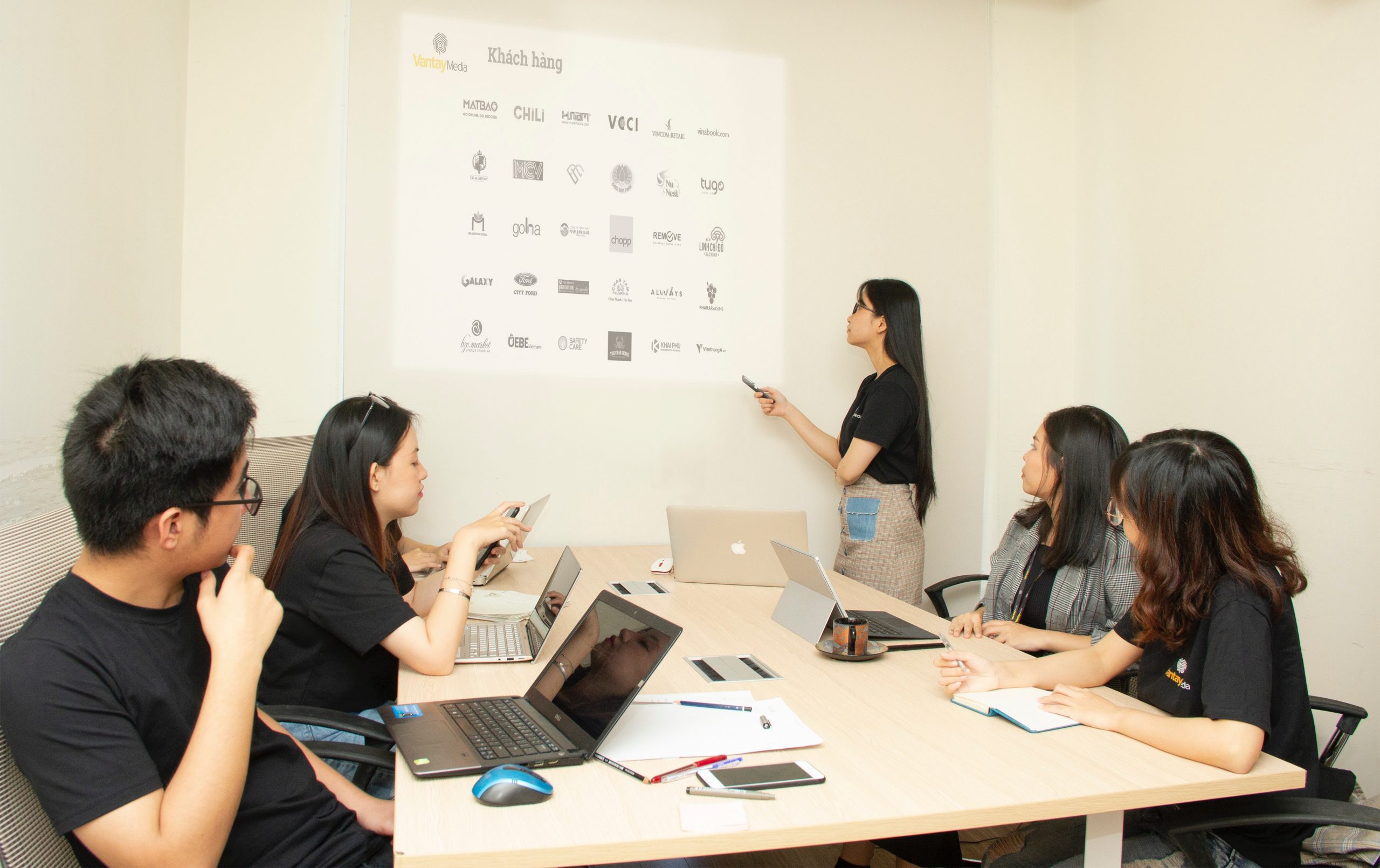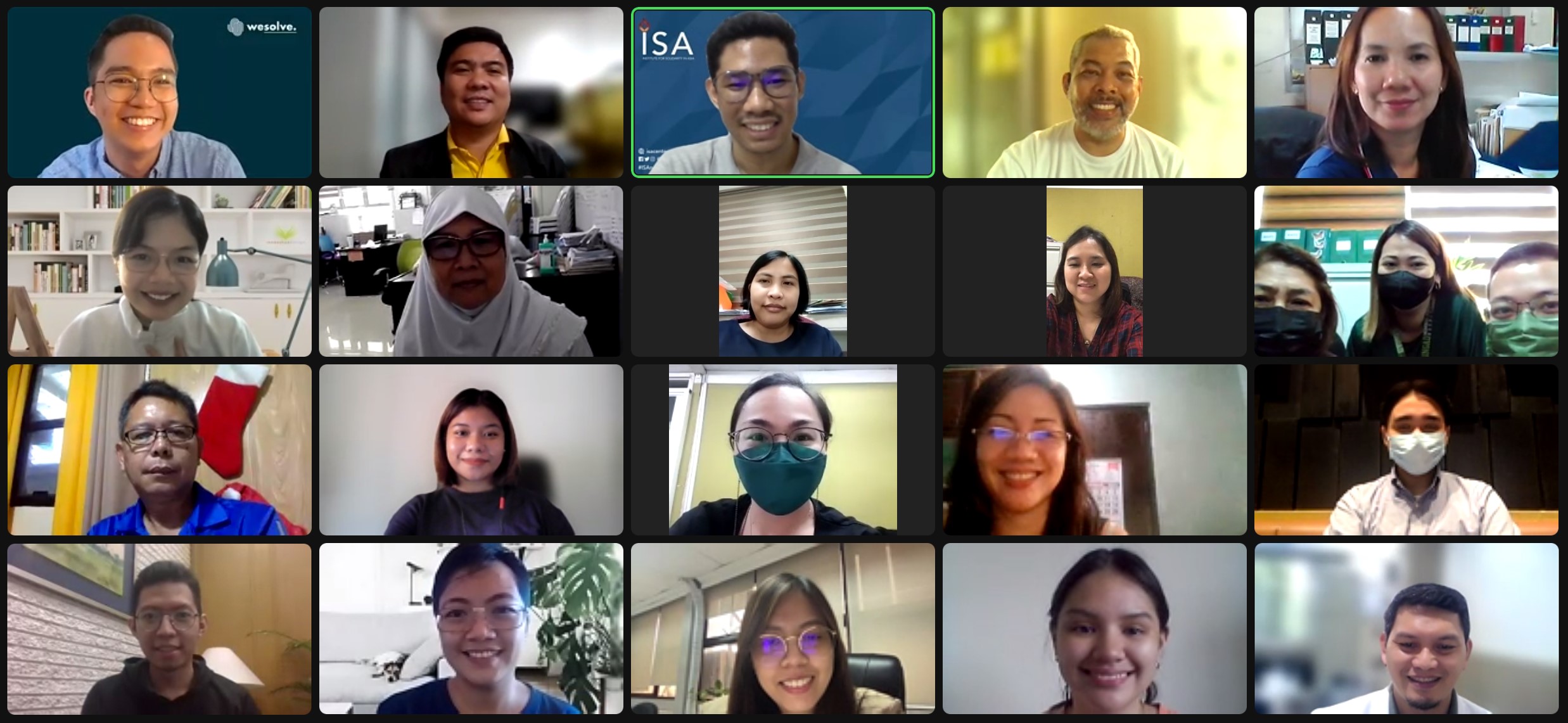After several successful runs, the Institute for Solidarity in Asia (ISA) completed its year-long Skills Lab program with a partner-favorite course on the Harmonization of the PGS with ISO.
Held last December 1, the whole-day course hosted a class of 10 participants from various government agencies and institutions and was facilitated by Ms. Darlene Page-Elnar, a Quality, Environment, Occupational Health and Safety, Food Safety advocate and ISA’s go-to expert for ISO and management systems.
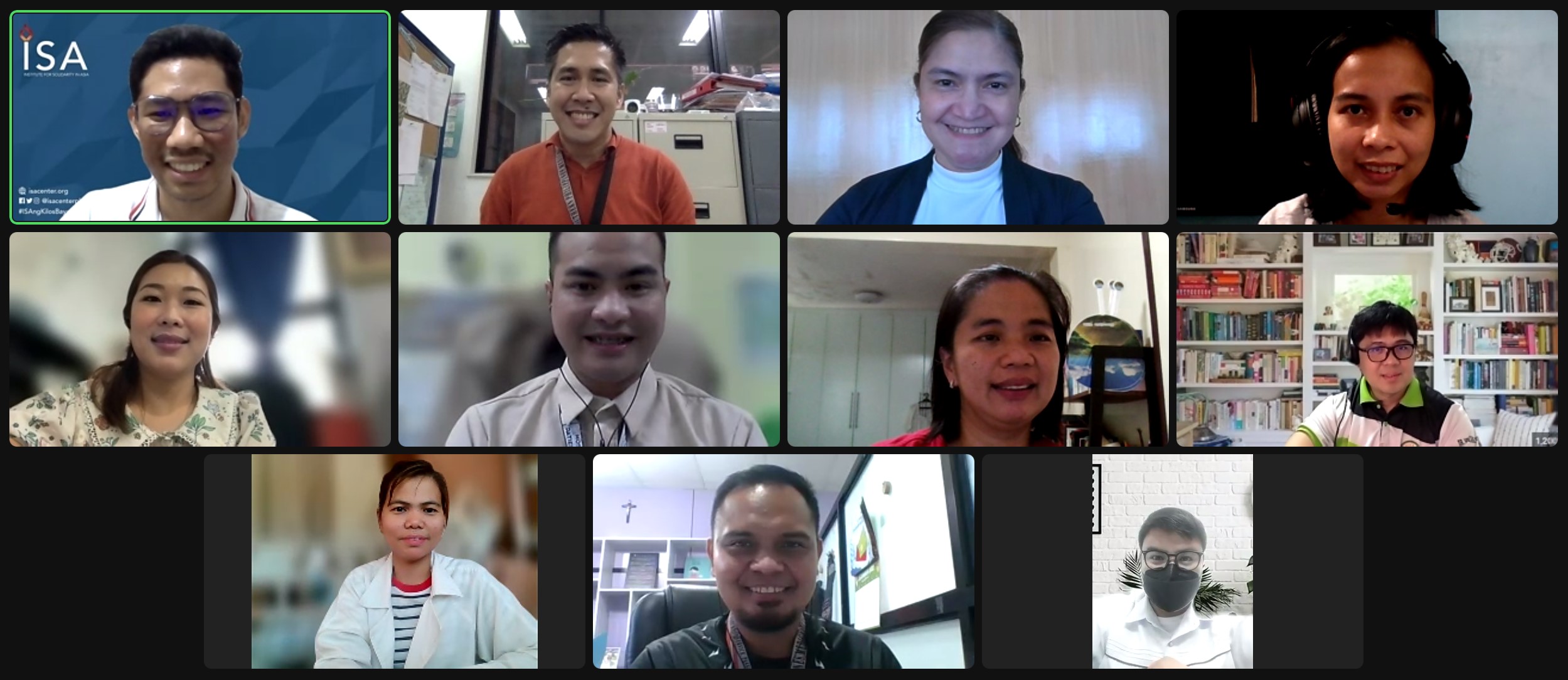
The course aimed to give participants an overview of ISO 9001:2015, the various requirements of the International Standard, including the Quality Management Principles, and how the Performance Governance System (PGS) can integrate with their organization’s existing ISO mechanisms and practices. It also gave feature insights from various organizations that have successfully integrated the PGS with the ISO.
Ms. Page-Elnar started the session by discussing a set of modules that equipped their organizations with knowledge of the ISO 9001:2015 and the PGS Organizational Strategic Position and Roadmap. To show how partners can coherently integrate both sets of requirements, the management expert presented the PGS and ISO Integration Matrix, showing the nine PGS elements alongside their respective ISO clauses.
She also highlighted the importance of monitoring within regular interval on the status of the set deliverables. One helpful document is an OKR (Objective and Key Results), which helps remind practitioners to measure their progress.
To deepen the understanding of the participants, Ms. Page-Elnar conducted a series of workshops that allowed them to conduct a baseline review of their current systems and cross-reference their PGS Scorecards with their Quality Management System key performance indicators (QMS-KPIs).
During the open forum, some participants shared their insights and showed appreciation for the course and the lecturer.
“I appreciate how we can harmonize the ISO with PGS. Hopefully, we will achieve all our missions if we want to create [a] culture, we try our best to making it simplified so they can understand,” Dr. Sean Española from the Southern Philippines Medical Center shared.
Ms. Page-Elnar ended the session by encouraging the participants to pursue measurable targets and plans to get optimal results out of their efforts.
“Being an ISO-certified organization should not be a problem towards your Compliance Stage, Proficiency Stage, et cetera. The mere fact that you passed or hurdled all of these audits, madali na lang dapat. Makikita mo na lang dapat yung mga attributes na ginagawa mo in your organization,” she said.

